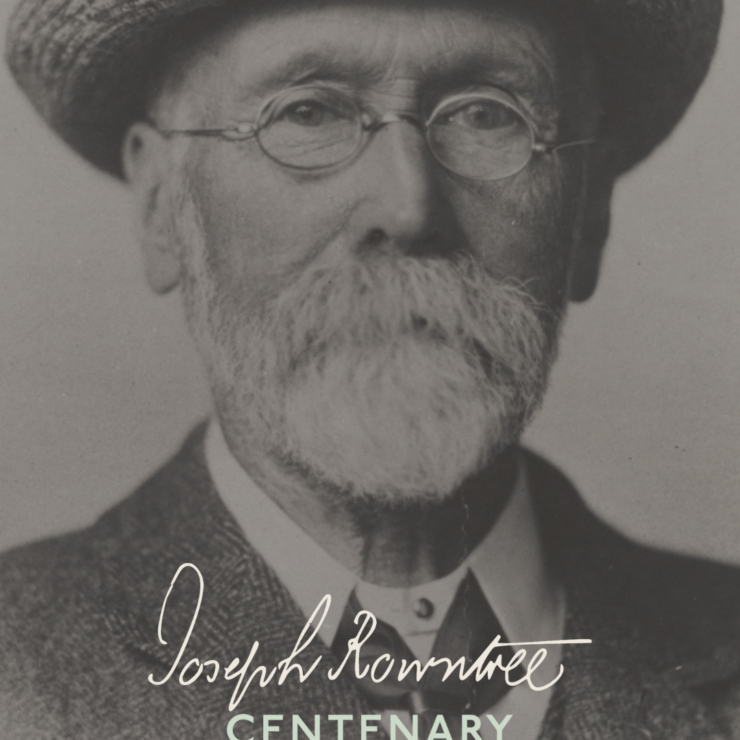Celebrating 100 years of Joseph Rowntree
Marking 100 years since the York confectionery businessman, social reformer and philanthropist Joseph Rowntree (1836–1925) died.
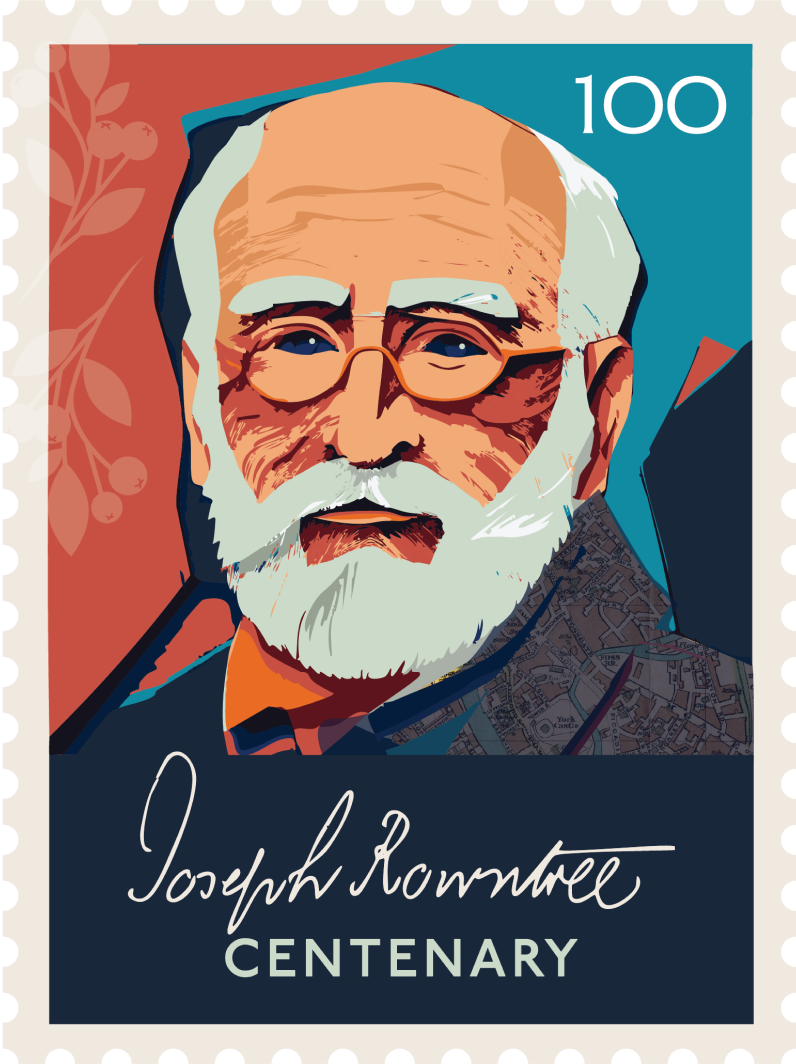
What is the Joseph Rowntree Centenary?
Why it’s important – impact in York and wider
The Joseph Rowntree Centenary is marking 100 years since the York confectionery businessman, social reformer and philanthropist Joseph Rowntree (1836–1925) died. We are marking the occasion by raising awareness of his remarkable life and the legacy he left which continues to this day, especially in York.
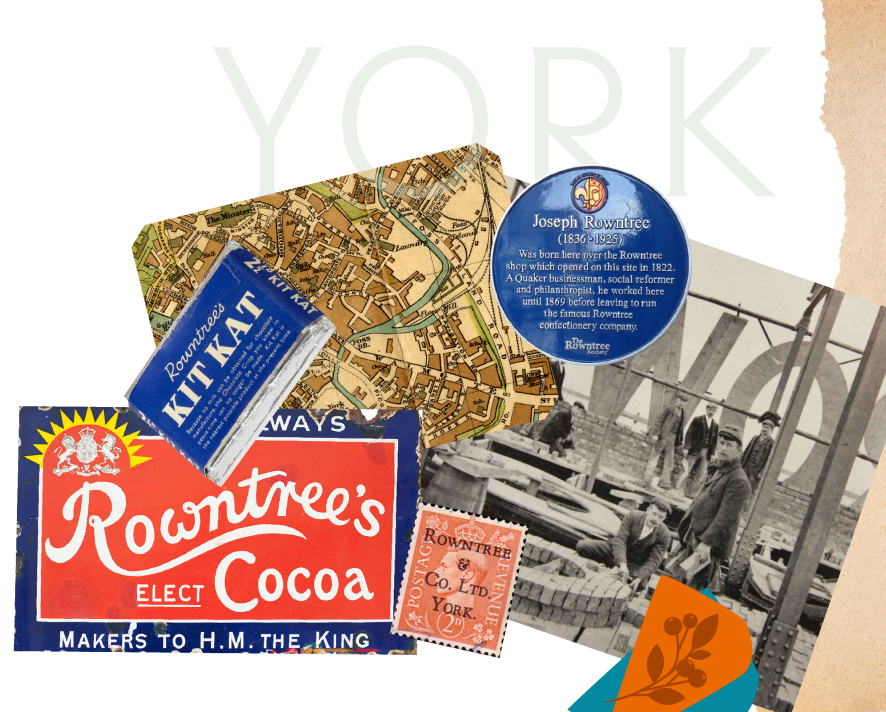
Who was Joseph Rowntree?
Joseph Rowntree (1836–1925) was a Quaker, philanthropist, and businessman dedicated to social reform. Born in York and educated at Bootham School, he apprenticed in his father’s grocery business before joining his brother Henry in 1869 to build the Rowntree’s cocoa, chocolate and confectionery company.
Rowntree’s became world-famous for products like Fruit Pastilles, KitKat, and Smarties, employing over 7,000 people in York by 1923. Joseph’s Quaker values shaped him as a pioneering employer who championed workers’ welfare. His success in business enabled him to improve housing, education, and social welfare for those in need.
When Joseph died in 1925, thousands lined the streets for his memorial events. His concern for finding and dealing with the root causes of society’s problems carries on with the three Trusts he established—JRF, JRCT, and JRRT—who continue to influence social change today.
However, Joseph’s legacy includes the company’s role in colonial economies in Africa and the Caribbean, which benefited from unfree and/or exploitative labour systems. It is important to also acknowledge these histories and their lasting impact.
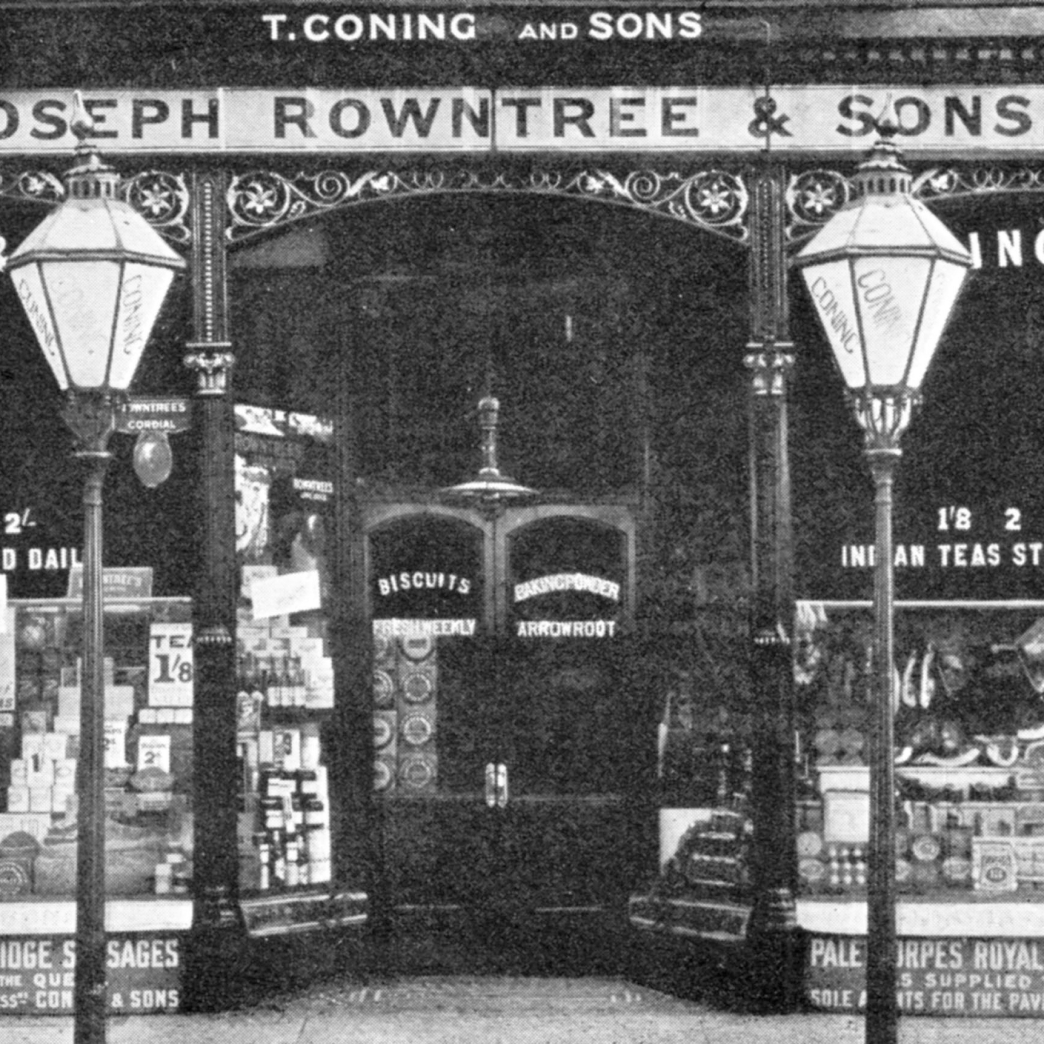
Centenary Events
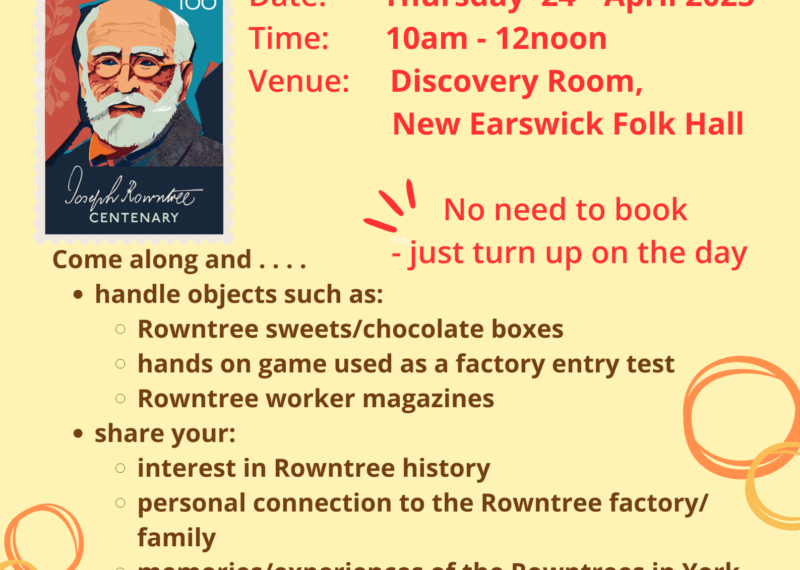
Open House Welcomes The Rowntree Society
Quaker Influence
Joseph Rowntree’s Quaker faith was integral to how he lived his life as well as being a core influence on his views, decisions and actions. He attended the Clifford Street Meeting which is still going strong today (now known as Friargate).
Quaker Values:
Quakers today use four key values to summarise their faith, beliefs and actions. We can see how Joseph also followed these:
Simplicity
Joseph was concerned about the dangers of his descendants having too much wealth from the success of the Rowntree’s company. He wrote to them, “…the observation of a lifetime has led to the belief that any considerable amount of wealth more often proves to be a curse than a blessing” and “the duty of the “simple life” has been much insisted upon of late, but I know how easy it is in the various forms of personal expenditure to acquire, step by step, expensive habits which, so far from increasing the real richness and fulness of life, add to its burden.”
Truth
Joseph was seen as someone with integrity and several of the tributes to him when he died mentioning this. Quoting the Bible, Sir George Newman described Joseph as “…one who executeth judgment and loveth the truth. His faculty of judgment; sane, clear and well-balanced, was one of his outstanding characteristics.”
Equality
Guided by the Quaker belief in seeing “God’s light” in everyone, Joseph treated others as equals. True to Quaker tradition, he encouraged people to address him by his first name, including his employees. He regularly invited workers, regardless of rank, to join him on his trips to Scarborough and welcomed their views, thoughts, and interests. Joseph was a strong advocate for lifelong education, believing that anyone could learn and improve themselves given access to opportunities. He worked to provide such opportunities through the Adult Schools and the library and educational programs at his factory. Under his leadership, his company employed more women than men from the early 1900s, and women were given the right to vote on workplace issues well before they could vote in political elections.
Peace
Joseph was a lifelong pacifist and, as such, was concerned about rise of jingoism and warned about its dangers in the years leading up to the First World War. He supported international efforts to prevent wars such as the League of Nations. Rowntree Park was given to the City of York by Joesph in 1921 as a memorial to his employees who had died in the First World War. On the wall of its dovecot is a plaque saying, “Many were inspired by the faith that this war might be the end of war – that victory would lead to an enduring peace and to greater happiness for the peoples of the world. The creation of the League of Nations will be a fitting crown to the faith and hope of the men who have fought and a true memorial to their endurance, heroism, comradeship and sacrifice.”
JR100 List
To celebrate 100 years, we have curated 100 notable stories and aspects from the archives. This list attempts to cover the wide ranging influence and legacy of Joseph Rowntree's life, and will continuously be added to until we have shared 100! Updates will be on social media throughout 2025. Watch this space!
Please note: We have made every effort to ensure the accuracy of the information through extensive research. However, if you spot any inaccuracies or have suggestions for improvement, we would greatly appreciate your feedback. Please feel free to reach out to us at info@rowntreesociety.org.uk to let us know!





